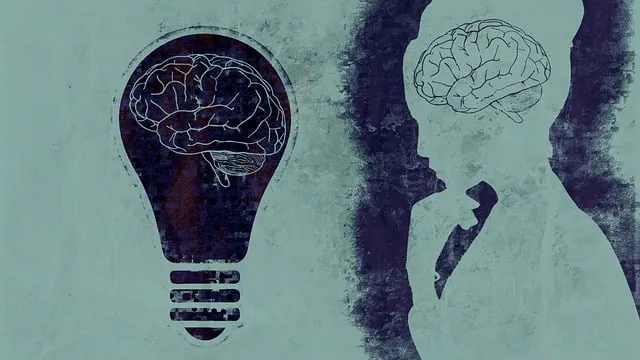The Kaiser Permanente mental health facility in Littleton employs a multi-faceted risk assessment and management strategy prioritizing patient safety and clinical decision-making. This includes comprehensive patient intake assessments, ongoing monitoring, evidence-based interventions like Stress Reduction Methods and Mental Wellness Journaling, and supportive supervision for healthcare providers to prevent burnout. Their Continuous Improvement and Monitoring Process (CIM) integrates recent research, clinical outcomes, and patient feedback into treatment protocols, ensuring tailored, effective care. Through these approaches, the facility enhances patient resilience, encourages active participation in mental health journeys, and fosters a supportive environment for both patients and professionals.
Mental health professionals face unique challenges, demanding a comprehensive risk assessment strategy. This article explores critical aspects of risk management within mental healthcare settings, using the example of the Kaiser Permanente mental health facility in Littleton. We’ll delve into understanding risk assessment, identifying key risks specific to this environment, and examining effective strategies for mitigation. Additionally, we’ll discuss continuous improvement processes, ensuring a dynamic approach to safeguarding patients and staff at Kaiser Permanente Littleton.
- Understanding Risk Assessment in Mental Health Settings
- Key Risks at Kaiser Permanente Mental Health Facility Littleton
- Strategies for Effective Risk Management
- Continuous Improvement and Monitoring Process
Understanding Risk Assessment in Mental Health Settings

In mental health facilities like the Kaiser Permanente mental health facility in Littleton, risk assessment is a cornerstone of patient safety and clinical decision-making. It involves systematically evaluating and understanding potential hazards and vulnerabilities within the therapeutic environment. This process aims to identify and mitigate risks specific to each patient’s unique needs and circumstances, ensuring their well-being during care. Risk assessment in these settings goes beyond identifying general threats; it requires professionals to consider the complexities of mental health conditions, individual patient factors, and potential triggers that could negatively impact treatment outcomes.
Effective risk assessment at a Kaiser Permanente mental health facility in Littleton incorporates various strategies such as thorough patient intake assessments, ongoing monitoring, and evidence-based interventions. Professionals are trained to recognize signs of deterioration, suicidal ideation, or other critical behaviors. Additionally, implementing initiatives like Stress Reduction Methods, Community Outreach Program Implementation, and Mental Wellness Journaling Exercise Guidance can be part of a comprehensive risk management strategy. These approaches not only support patient resilience but also empower them to actively participate in their mental health journey, thereby reducing potential risks and enhancing overall treatment effectiveness.
Key Risks at Kaiser Permanente Mental Health Facility Littleton

The Kaiser Permanente mental health facility in Littleton faces unique challenges that demand a comprehensive risk assessment. One of the primary concerns is the high potential for burnout prevention strategies for healthcare providers. Mental health professionals often bear immense emotional and psychological strain, leading to increased stress levels and decreased job satisfaction. This issue is exacerbated by heavy caseloads and demanding patient needs.
Additionally, fostering mental health awareness among staff is crucial. The facility must address potential risks related to self-esteem improvement, as professionals may struggle with imposter syndrome or personal doubts, impacting their performance and overall well-being. Effective risk management requires a multifaceted approach, including supportive supervision, accessible counseling services, regular staff training on stress management, and the promotion of open communication to ensure professionals feel valued and empowered within the Littleton facility.
Strategies for Effective Risk Management

At a Kaiser Permanente mental health facility in Littleton, effective risk management is a cornerstone of patient care and professional well-being. Strategies for managing risks go beyond mere compliance; they involve proactive approaches tailored to the unique challenges faced by mental health professionals. One key strategy is implementing robust Risk Management Planning for Mental Health Professionals. This involves identifying potential hazards—such as high-risk cases, work-life balance issues, or exposure to traumatic content—and developing protocols to mitigate these risks.
Integrating Emotional Healing Processes and Stress Reduction Methods into the risk management framework is equally vital. Regular staff training on stress management, mindfulness, and self-care practices empowers professionals to navigate stressful situations effectively while preventing burnout. This holistic approach ensures that mental health facilities in Littleton not only maintain high standards of patient care but also foster a supportive environment where professionals can thrive.
Continuous Improvement and Monitoring Process

At the Kaiser Permanente mental health facility in Littleton, a robust Continuous Improvement and Monitoring Process (CIM) is implemented to ensure high-quality care for patients. This process involves regular reviews and updates to treatment protocols based on the latest research, clinical outcomes, and patient feedback. By adopting this approach, the facility aims to foster an environment of continuous learning and adaptation, which is crucial in the dynamic field of mental health.
The CIM process includes several key components such as data collection, performance evaluation, and quality assurance measures. Specifically, the mental health professionals at Kaiser Permanente Littleton engage in regular training sessions focused on Depression Prevention, Mental Wellness Coaching Programs Development, and Emotional Well-being Promotion Techniques. This ongoing education ensures that staff members stay abreast of evidence-based practices, enhancing their ability to provide effective care tailored to individual patient needs.
Mental health professionals at the Kaiser Permanente mental health facility in Littleton must continually navigate complex risks to deliver effective care. By understanding risk assessment, identifying key hazards specific to their environment, and implementing robust strategies for management, they can create a safer, more supportive clinical setting. Continuous improvement and monitoring are essential to adapt to emerging challenges, ensuring patient well-being remains the top priority.






